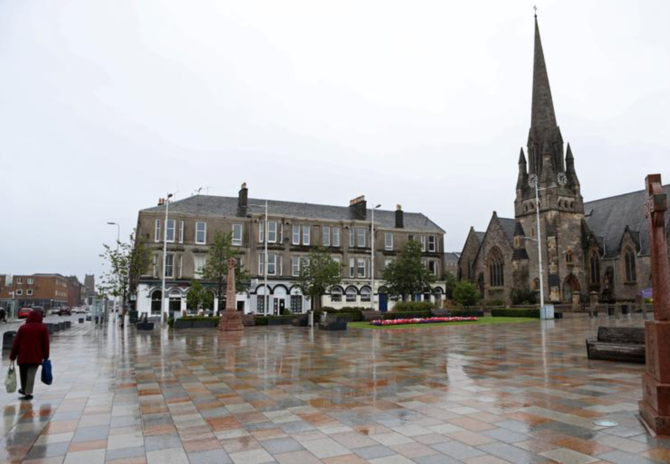LONDON: A collection of ancient Syrian glassware is to be put on display in Scotland for the first time with the assistance of Syrian refugees.
The 30-piece collection dating back around 2,000 years was discovered in storage at a museum in the town of Paisley, Renfrewshire, where it is thought to have resided since 1948.
The museum, currently undergoing a £42 million ($55.38 million) refurbishment, decided to involve local Syrians who fled their country’s war in the display process, from labeling items in English and Arabic to providing context for the collection and explaining its significance today.
Refugee Jamal Horani said his family had owned their own modest collection of glass in Syria, but had been forced to leave everything behind when they fled the city of Homs.
“I was so pleased to see these objects that had come from Syria to Scotland,” he added. “I don’t know how or why they came here but I feel very proud that we were able to make these masterpieces. It gave me some emotional thoughts about Syria.”
His sister Khadeja said: “To see them takes us back to old memories, when tourists would come from all over the world to buy our glass.”
Syria’s glassmaking industry was, until the outbreak of the war, revered worldwide for the skills of its artisans.
Horani’s wife Maryam said: “Syrian people are very sociable, with families visiting and eating together. We tend to keep special glass not for meals but for ornaments, which we can talk about to the younger generation and introduce them to their culture.”
The glassware collection is thought to have been bought from an antique dealer in Syria by the family of Elizabeth Spiers Paterson, before being bequeathed to the Paisley Museum in 1948.
Joel Fagan, a research assistant at the museum, said: “It’s incredible they (the items) survived. We could have just thrown them in a case but we didn’t feel that was acceptable. We wanted to bring the museum to the Syrian community.”
He added: “These objects come from a time when glass-blowing had only just been invented, but the glass industry has been booming in Syria continuously until the current conflict.”
Renfrewshire is home to around 200 Syrian refugees, with 28 children having been born to the community since it was established as part of the UK government’s official resettlement scheme in 2015.
“We didn’t know much about Scotland before we came, and we had some concerns about the weather and a new culture, but we’ve been able to get on well, make new friends, and now we’re part of the community as well as guests,” Horani said.
Khadeja said she hopes the display will let visitors see a different side of Syria’s history than the one they have become accustomed to in modern times.
“We’d like visitors to understand that we have a great civilization, and that our glassmaking is known across the world,” she added.


























